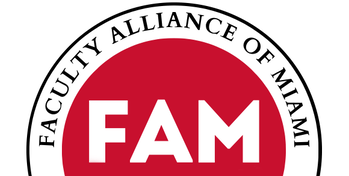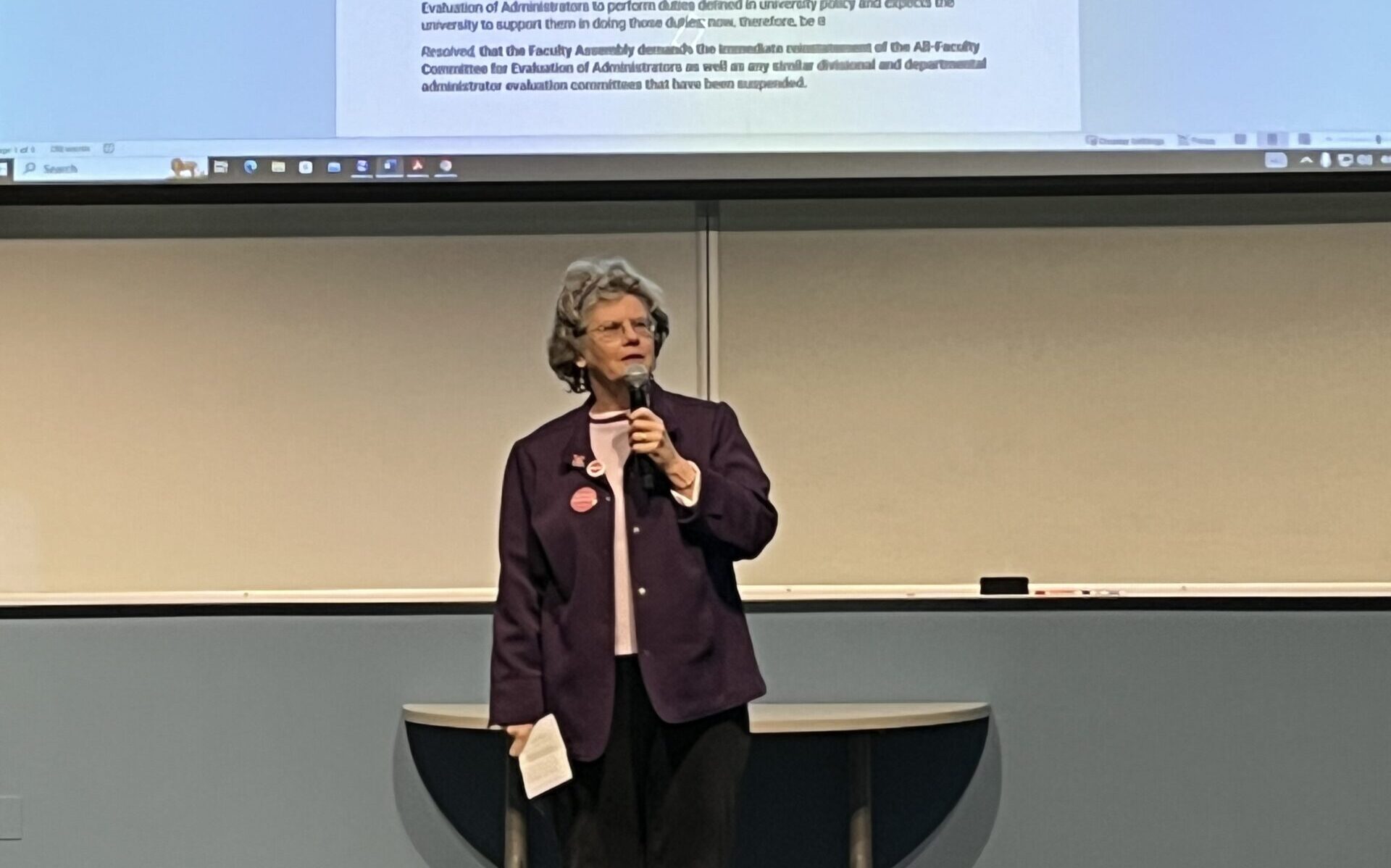I served on the Committee for the Evaluation of Administrators for five years between 2003 + 2008. At some point I co-chaired the Committee with Professor John Heyda from Middletown campus.
The Committee was elected by our peers in Faculty Assembly—representing each academic division and the libraries.
As Department Chair during those years, I understood that administrative work can be somewhat alienating from faculty and staff, and the evaluation protocol in my Department, and in the Committee for the Evaluation of Administrators, allowed for the kind of feedback that we administrators need.
“My faith in democracy and shared faculty governance is one reason why I support the Faculty Alliance of Miami, particularly in the face of what I see as declining faculty input.”
I found that the Committee for the Evaluation of Administrators was a useful, if somewhat under-appreciated committee. We led the third and fifth year evaluations of a few Deans—the Libraries, Engineering, and what were then the Deans of the regional campuses (including Daniel Hall!). The response rate was low, but faculty appreciation for the effort was high. In other words, the exercise was a nod, however perfunctory, toward shared faculty governance. We knew full well that our evaluations were recommendations only, or as it says in MUPIM to contribute “part of the evidence upon which future personnel decisions may be based.” We were not a personnel committee; we had no authority to promote or fire anyone. We merely collected the opinions of our colleagues through an established process.
An example of the advisory aspect of the process was our evaluation of Provost Herbst, where the response rate was higher than usual (about 30%) and the responses were not particularly positive. In a meeting with then President Hodge, those negative comments were essentially dismissed by key administrators, and Provost Herbst was reappointed.
That experience of faculty governance was one reason I took on the position of Chair of University Senate Executive Co. in 2008-2009—and all of that university service work in faculty governance was, I believe, one reason why I was awarded the University’s Benjamin Harrison Medallion in 2016, awarded each year by the university to a faculty member for their “extraordinary and sustained contributions related to teaching, research, and service over the course of a faculty member’s career at the University.”
My faith in democracy and shared faculty governance is one reason why I support the Faculty Alliance of Miami, particularly in the face of what I see as declining faculty input. President Crawford’s ambitious THRIVE initiative, “designed to strengthen teaching, research, and service missions” is being led by four working groups of about 45 people, of which only 6, or 13% are faculty. This does not give me much faith in the institution’s commitment to even a nominal belief in shared governance and democratic process, like what I saw in the Committee for the Evaluation of Administrators which I urge the administration to reinstitute.


Leave a Reply